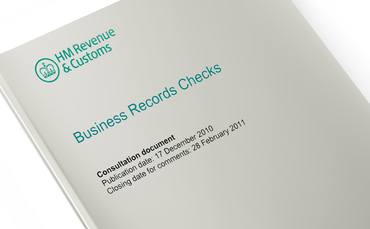Keeping records
If you have to send HM Revenue & Customs (HMRC) tax returns you’ll need to keep records to help you complete them correctly. HMRC may ask to see your records if they do a check on a return you send in for any tax.
On this page:
- Why you need to keep records
- How to keep your records
- The records you need to keep
- More useful links
Why you need to keep records
If you have to send HMRC a tax return, the law says that you must keep all the records and documents you need to complete the return. If you don’t have adequate records or if you don’t keep them for long enough, you may have to pay penalties.
Record keeping penalties
If you do not keep adequate records or you do not keep your records for the required period of time, you may have to pay a penalty. See the records you need to keep below for links to more details.
Penalties for an inaccurate return
Keeping your records up to date will help you have all the information you need to fill in your return correctly. If you send HMRC an inaccurate return you may have to pay a penalty
You won’t have to pay a penalty if you can show that you took reasonable care to get your return right but still made a mistake. Some of the ways in which you can show you’ve taken reasonable care include:
- keeping full and accurate records
- regularly updating your records
- keeping your records securely
- checking with HMRC or a tax adviser if there is something that you don’t understand
How to keep your records
HMRC asks you to keep the original documents which show you’ve had tax deducted. For example if you’re an employee your P60 form from your employer (which shows your pay and tax information for the tax year).
HMRC recommend you keep all the original documents you receive. This does not mean you need to keep them on paper. Most records can be scanned and kept electronically on a computer or a storage device such as a CD or memory stick. Make sure that whatever you use to keep records you:
- have both the front and back of documents
- can easily access them so you can pass them to HMRC
For information about mobile applications to help small businesses with record keeping please see the section ‘More useful links’ at the end of this page.
The records you need to keep
The records you’ll need to keep and how long you need to keep them depends upon the type of tax you have to pay. Follow the links below for more information:
Record keeping for individuals and directors (Self Assessment)
Record keeping if you are self-employed (Self Assessment)
Record keeping for partners and partnerships (Self Assessment)
Records for Corporation Tax: what you need to keep
Accounts and records for your VAT
PAYE record keeping
Expenses and benefits record keeping
Record keeping for Construction Industry Scheme Contractors
Record keeping and Capital Gains Tax
Trust record keeping for tax purposes
Inheritance Tax and record keeping
Source: hmrc.gov.uk




